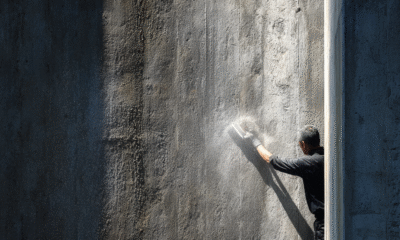

Journey Through Faith
The Ceiling Is a Lie: Why You Stopped Growing (And How to Restart)
By the time we hit thirty, most of us subconsciously decide we are finished products. We say things like, “I […]
-


Focus & Clarity
/ 2 months agoStop Fighting the Current
I used to believe that if I wasn’t exhausted, I wasn’t trying hard enough. I treated life like a wall […]
-


Journey Through Faith
/ 2 months agoChristmas and the End of the Self-Rescue Mission
I live most of my life fighting a war against entropy. Order turns to chaos. Energy turns to exhaustion. Motivation […]
-


Journey Through Faith
/ 3 months agoHanukkah and the Miracle of Starting
I often feel like I don’t have enough fuel to finish what I started. I look at my week, my […]
-


Actionable Frameworks
/ 3 months agoConfucianism – The Blueprint for Social Architecture
We live in a world of high social friction. Interactions feel awkward, relationships are undefined, and despite being “connected,” we […]
-


Focus & Clarity
/ 4 months agoJainism – The Protocol for Maximal Mental Efficiency
In your pursuit of competence and a strategic mental edge, you look for actionable frameworks. Today, we examine one of […]
-


Discipline & Goal Achievement
/ 5 months agoJourney Through Faith: Judaism – The Annual System Reset
This post continues our exploration of major world belief systems, not as theology, but as battle-tested frameworks for human focus, […]
-


Journey Through Faith
/ 6 months agoFinding Eunoia in Zoroastrianism: The Cosmic Battle for a Well-Ordered Mind
Do you ever feel like your mind is a battlefield between your best intentions and your worst impulses? One of […]
-


Journey Through Faith
/ 7 months agoEunoia in Action: The Dilemma of Arjuna in the Bhagavad Gita
What do you do when your duty conflicts with your heart? When the “right” thing to do feels impossibly painful? […]
-


Journey Through Faith
/ 7 months agoFinding Eunoia in Hinduism: The Path of Dharma, Karma, and Moksha
Within Hinduism, one of the world’s oldest and most diverse landscapes of thought, we find a powerful framework for navigating […]


